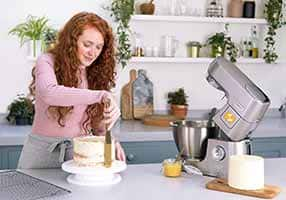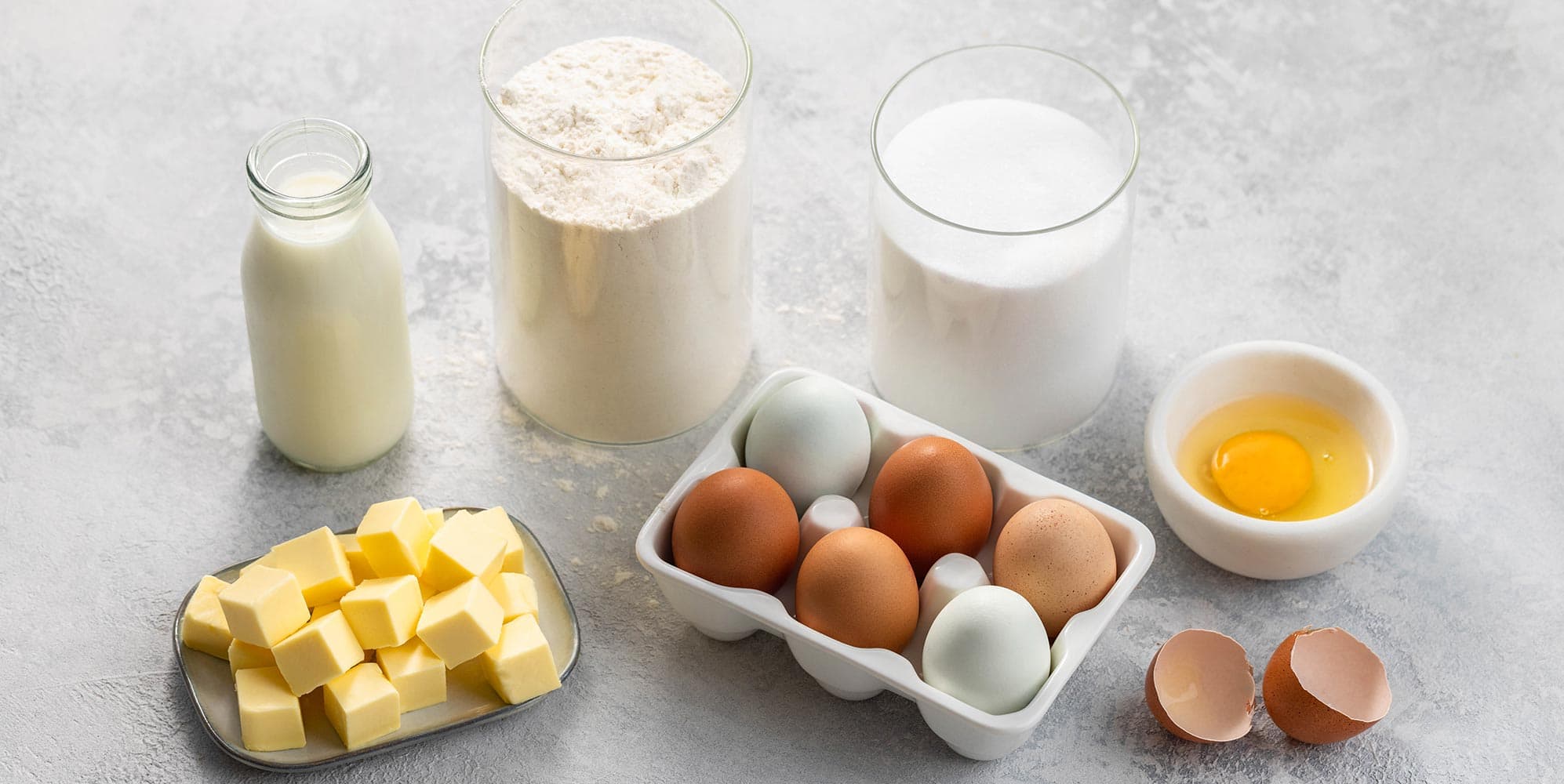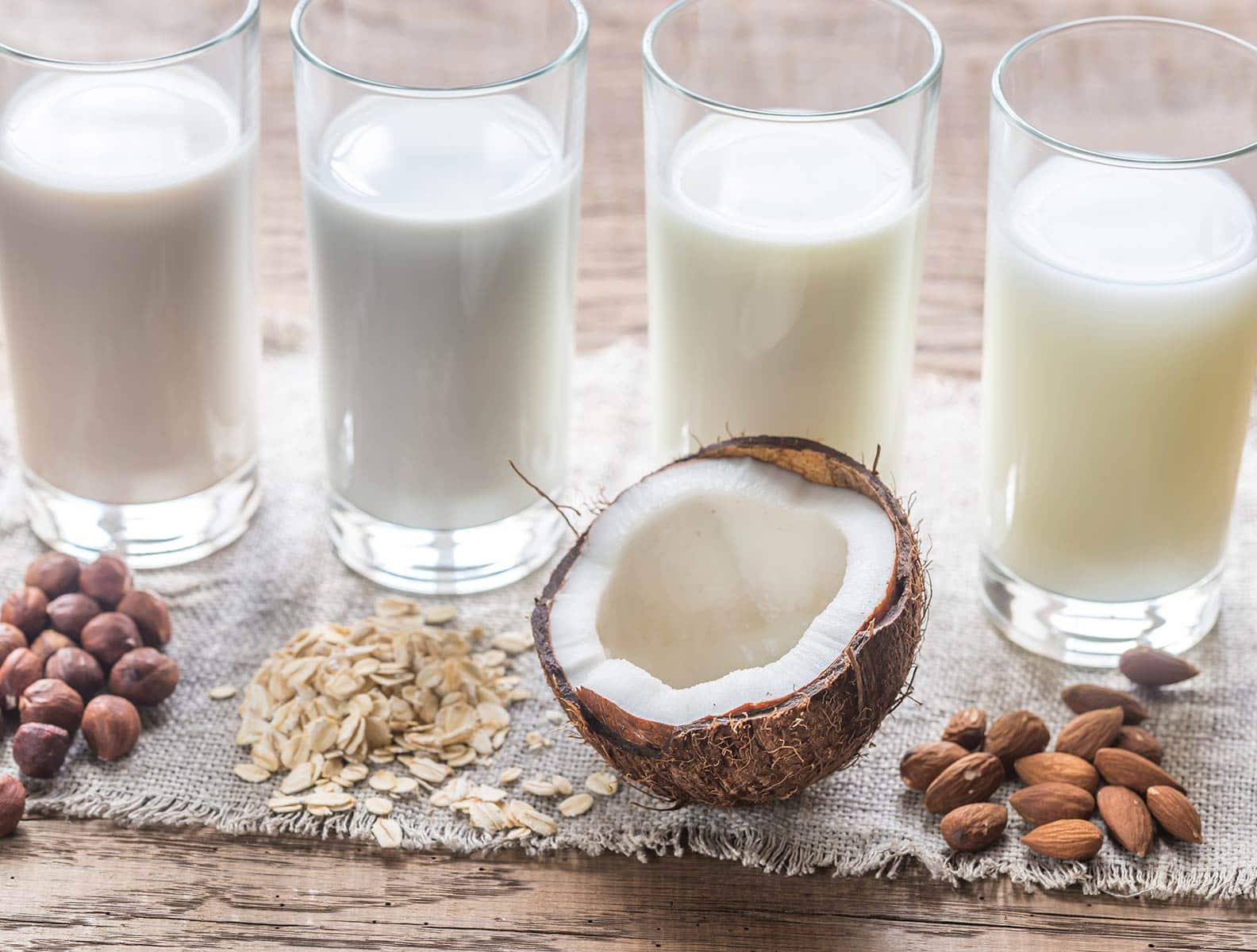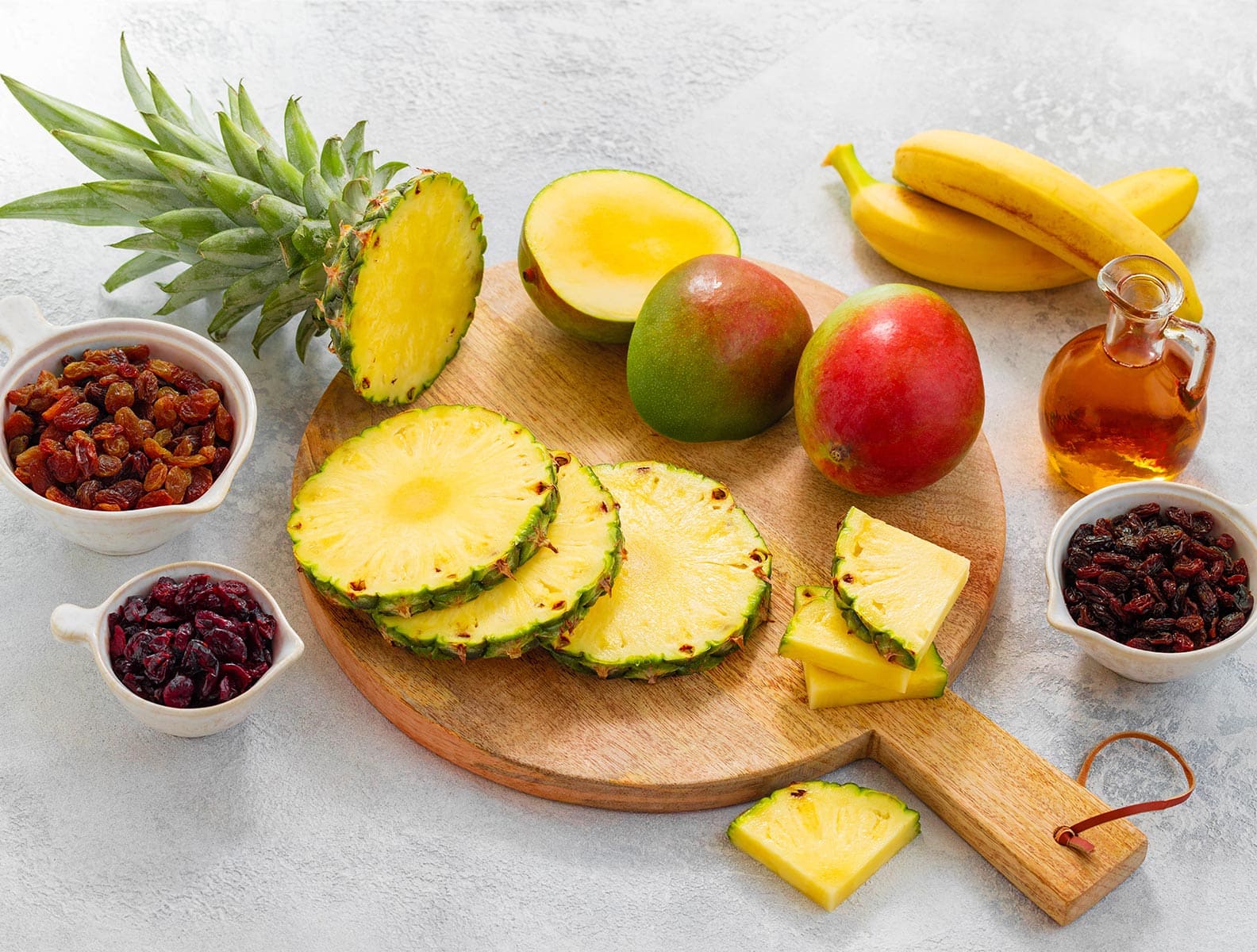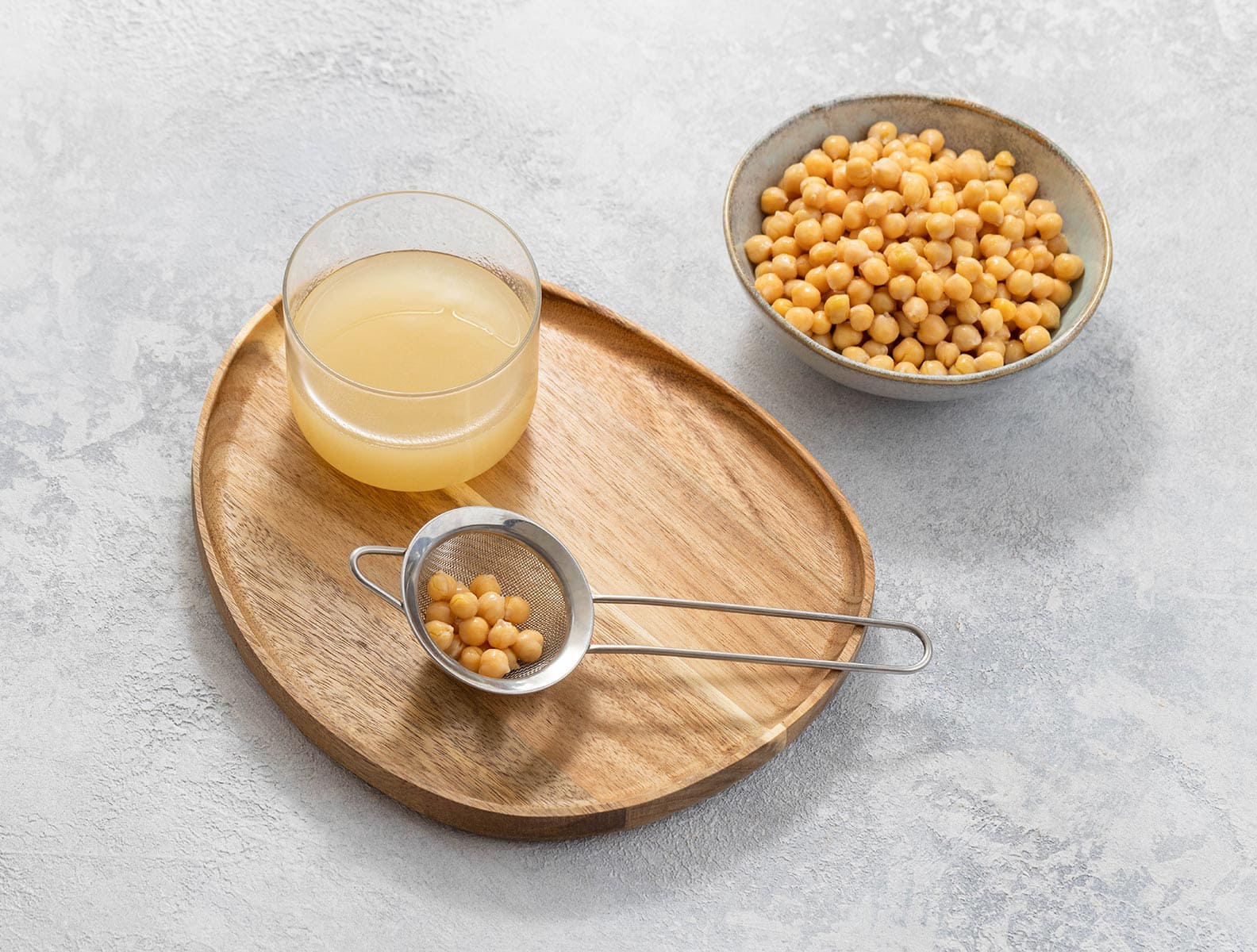Dairy products are traditionally used in baking to add moisture and
flavour, as well as soften texture. But don’t panic if you haven’t got
enough regular milk or butter, or want to make a vegan-friendly version
of a classic bake. There are plenty of readily available, store cupboard
swaps that can save the day.
Running low on milk? Try your favourite plant-based milk instead, like
coconut, soy, almond or rice. Likewise, in place of butter you can use
vegetable spreads, Greek yoghurt or coconut oil, while using olive oil
gives cakes a wonderfully buttery richness and golden crumb.
If you’re out of sour cream, a straight swap is to use the same quantity
of plain yoghurt instead. Plain yoghurt can also be used in place of
buttermilk. Another option if your recipe requires buttermilk is to use a
mixture of milk and either lemon juice or white vinegar. So if you need 1
cup (240ml) of buttermilk, mix a tablespoon of either lemon juice or
white vinegar with enough milk to make up the volume of 1 cup.
Looking beyond other oil and fat options, vegetables like grated carrots
or courgettes can also be used to help hydrate a mix, as they release
their moisture during the baking process.
Why not try making our deliciously moreish
vegan banana bread with
your
stand mixer, which is made using vegetable oil instead of butter.
